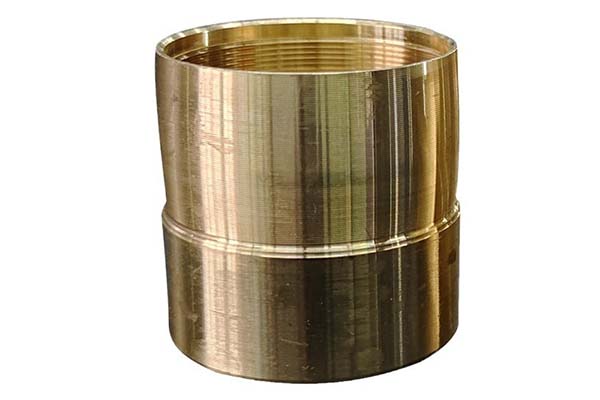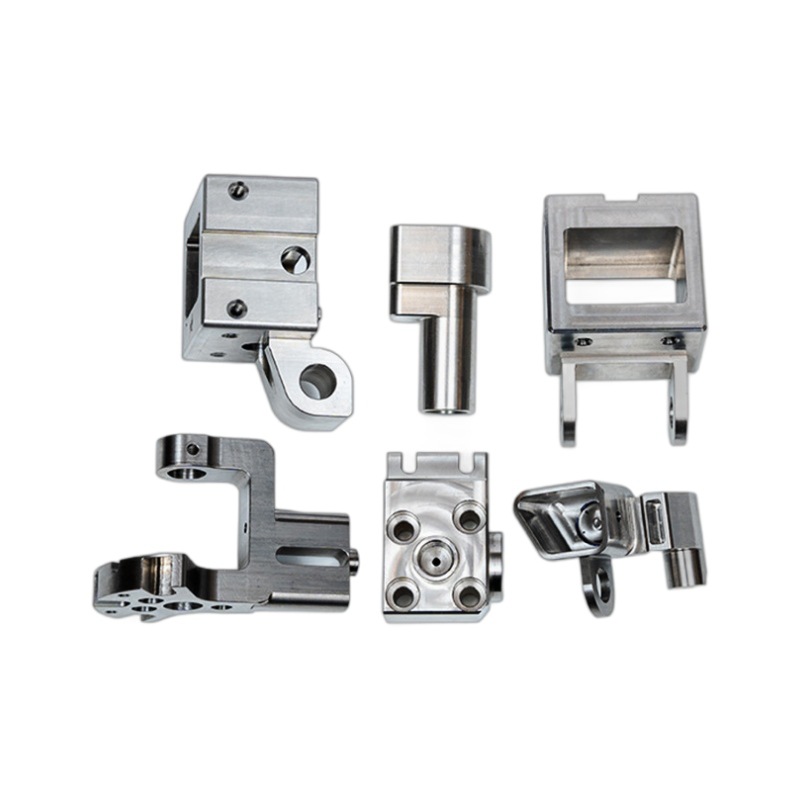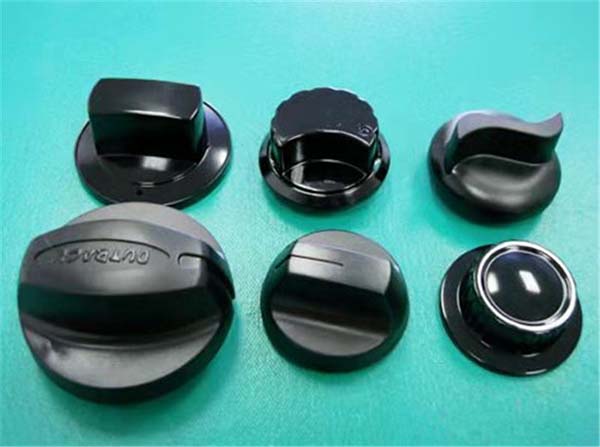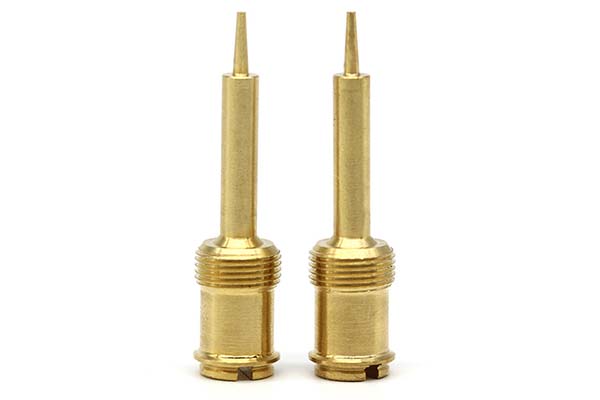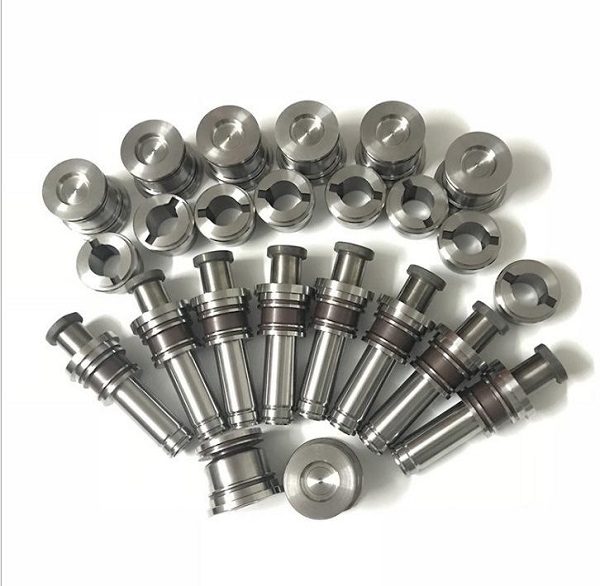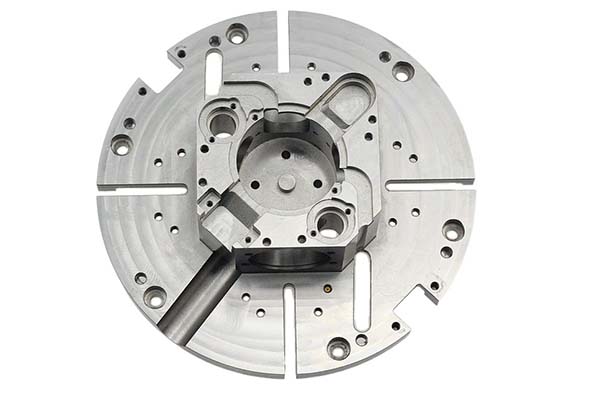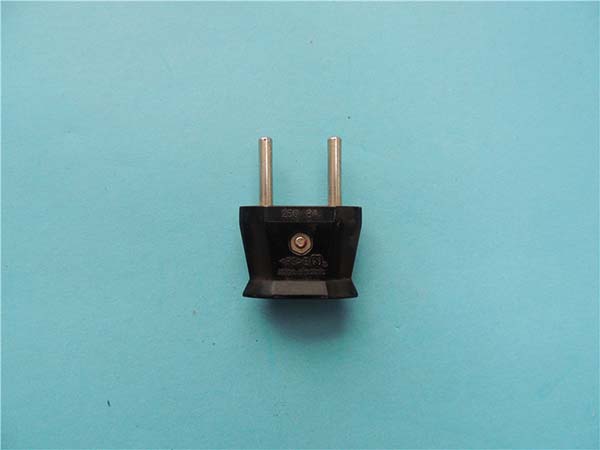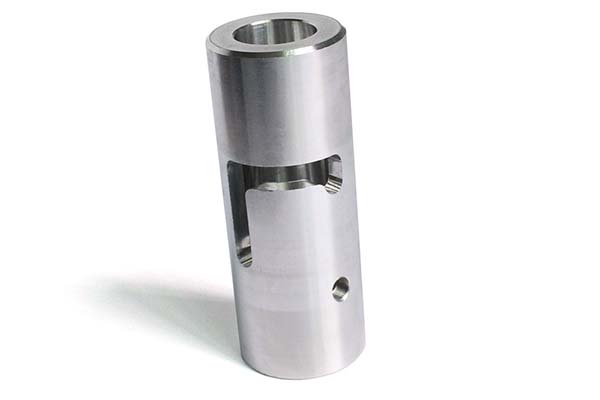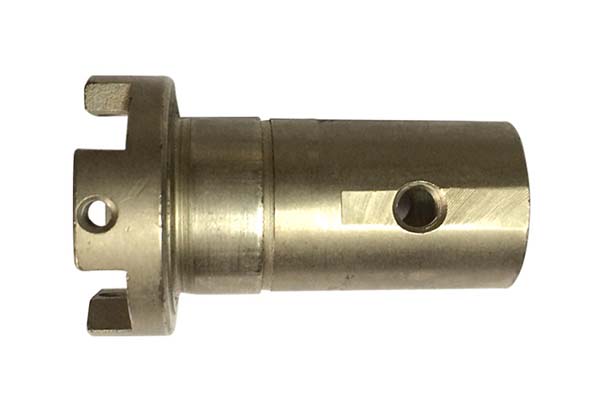Introduction
The Significance of CNC Machining in Modern Manufacturing
In the fast - paced world of modern manufacturing, CNC (Computer Numerical Control) machining has emerged as a cornerstone technology. It has revolutionized the way parts are produced, offering a level of precision, efficiency, and flexibility that was previously unattainable.
Precision Beyond Compare
CNC machining allows for the creation of parts with incredibly tight tolerances. In industries such as aerospace, where a minute deviation can have catastrophic consequences, CNC - machined parts ensure the highest level of safety and performance. For Yigu Technology example, turbine blades in aircraft engines are manufactured with tolerances in the range of thousandths of an inch. This precision is achieved through the computer - controlled movement of cutting tools, which can execute complex operations with unwavering accuracy.
Enhanced Efficiency
The automation aspect of CNC machining significantly boosts production efficiency. Once the programming is set up, CNC machines can run continuously, 24/7 in some cases, with minimal human intervention. This reduces the time required to produce a single part and also enables mass production. In the automotive industry, for instance, CNC - machined engine components are produced in high volumes, contributing to the overall cost - effectiveness of vehicle manufacturing.
Flexibility in Design
CNC machining is not limited by the constraints of traditional manufacturing methods. It can bring the most intricate and complex design concepts to life. Whether it's a part with organic shapes for a medical device or a highly customized component for a specialized piece of machinery, CNC machines can adapt to the design requirements. Designers can freely experiment with new ideas, knowing that CNC machining can translate their digital blueprints into physical parts.
Given the integral role of CNC machining in modern manufacturing, finding the right CNC machining parts manufacturer is of utmost importance. And when it comes to cost - effective, high - quality production, China has emerged as a global powerhouse in CNC machining. In the following sections, we will explore the key factors to consider when choosing a CNC machining parts manufacturer in China.
Key Factors to Consider
Quality Assurance
Quality should be the top priority when choosing a CNC machining parts manufacturer. A reliable manufacturer will have a comprehensive quality assurance system in place.
ISO Standards Compliance
Look for manufacturers that adhere to international standards such as ISO 9001. This certification indicates that the company has a well - defined quality management system. For example, a manufacturer certified to ISO 9001 has processes for documenting quality procedures, conducting internal audits, and continuously improving their quality performance. According to a study by the International Organization for Standardization, companies with ISO 9001 certification often experience a reduction in product defects by up to 30%.
Stringent Quality Inspection Processes
The manufacturing process should include multiple inspection points. For instance, raw materials should be inspected upon arrival to ensure they meet the specified standards. During the machining process, in - process inspections are crucial. After production, a final inspection should be carried out on the finished parts. This may involve dimensional checks, surface finish inspections, and material property tests. Some manufacturers use statistical process control (SPC) techniques to monitor and control the quality of the manufacturing process in real - time.
Advanced Testing Equipment
High - end testing equipment is a sign of a quality - conscious manufacturer. Equipment like coordinate measuring machines (CMMs) can accurately measure the dimensions of a part with an accuracy of up to 0.001mm. Optical comparators are also used to check the shape and dimensions of complex parts by projecting an enlarged image of the part onto a screen for comparison with the design.
Production Capabilities
A capable manufacturer should have a diverse range of production capabilities to meet different requirements.
Versatile Machining Processes
The ability to perform various machining processes is essential. Milling is used to create flat surfaces, slots, and complex 3D shapes. For Yigu Technology example, in the production of a mold cavity, milling can accurately carve out the intricate details. Turning is used to produce cylindrical parts such as shafts. A good manufacturer will have both horizontal and vertical milling machines, as well as CNC lathes for turning operations. Additionally, processes like grinding, drilling, and tapping should also be available in - house to ensure seamless production.
Wide Range of Processable Materials
The manufacturer should be able to work with different materials. Common materials include aluminum, which is lightweight and corrosion - resistant, making it ideal for aerospace and automotive applications. Stainless steel is used for its high strength and corrosion resistance, often in medical and food - processing equipment. Other materials like brass, copper, and various plastics such as PEEK (Polyether Ether Ketone) are also processed by advanced manufacturers. A company that can handle a broad spectrum of materials can better serve different industries.
High - Precision Machining
Precision is a key factor in CNC machining. Manufacturers should be able to achieve tight tolerances. In the aerospace industry, for example, parts may require tolerances in the range of ±0.005mm. A manufacturer with advanced equipment and skilled operators can meet these high - precision requirements. Some state - of - the - art CNC machines are capable of achieving sub - micron accuracies, although such extreme precision may not be required for all applications.
Experience and Expertise
Experience and expertise are invaluable in the CNC machining industry.
Years of Operation
A manufacturer with a long - standing presence in the market is likely to have encountered and overcome various challenges. For Yigu Technology example, a company with 20 years of experience has had time to refine its processes, build a reliable supply chain, and train its staff. They are more likely to have a better understanding of different materials, machining techniques, and customer requirements compared to a newly established firm.
Case Studies and Testimonials
Ask for case studies that demonstrate the manufacturer's capabilities. For instance, if you are in the medical device industry, look for examples of how the manufacturer has produced complex, high - precision parts for medical equipment. Testimonials from other customers can also provide insights into the manufacturer's quality, service, and reliability. A satisfied customer might say, "We have been working with [manufacturer name] for years, and they have consistently delivered high - quality parts on time, even for our most challenging projects."
Served Industries
A manufacturer that has served multiple industries has a broader knowledge base. A company that has experience in aerospace, automotive, and electronics industries can draw on different techniques and best practices from each sector. This cross - industry experience can lead to more innovative solutions and better - quality products.
Cost - effectiveness
While cost is an important factor, it should not be the sole determinant.
Price Comparison
It's natural to compare prices among different manufacturers. However, be cautious of extremely low - priced offers. Some manufacturers may cut corners on quality to offer lower prices, such as using substandard materials or skipping certain quality control steps. On average, the price of CNC - machined parts in China can vary by 20 - 50% depending on the complexity of the part, the material used, and the quality requirements.
Total Cost Consideration
Consider the total cost, which includes not only the price of the parts but also factors like shipping costs, potential rework costs if the parts are defective, and long - term maintenance costs. A slightly higher - priced part from a reliable manufacturer may prove to be more cost - effective in the long run if it has better quality and longer lifespan. For example, a high - quality part may require less frequent replacement, reducing the overall cost of ownership.
Delivery Time
Timely delivery is crucial for any manufacturing project.
Production Scheduling
A well - organized manufacturer will have an efficient production scheduling system. They should be able to accurately estimate the production time based on the complexity of the parts, the availability of materials, and the current workload. For example, a simple aluminum part may have a production lead time of 1 - 2 weeks, while a complex, multi - material part could take 4 - 6 weeks.
Supply Chain Management
The manufacturer's supply chain management also impacts delivery time. A reliable supply chain ensures that raw materials are available when needed. For instance, if a manufacturer has a long - term relationship with a trusted material supplier, they are less likely to experience delays due to material shortages. Additionally, having a backup plan for supply chain disruptions, such as alternative suppliers, can help ensure on - time delivery.
Customer Service
Good customer service can enhance the overall experience.
Responsive Communication
The manufacturer should respond promptly to your inquiries. Whether it's via email, phone, or online chat, a quick response time (within 24 hours is ideal) shows that they value your business. They should be able to answer your questions about the production process, pricing, and delivery status clearly and accurately.
After - sales Support
In case of any issues with the parts, the manufacturer should provide after - sales support. This may include replacing defective parts, providing technical assistance for installation or troubleshooting, and offering warranties. A manufacturer that stands behind its products with strong after - sales support gives you peace of mind.
Insights from Yigu Technology
Yigu Technology's Perspective
As a non - standard plastic and metal products custom supplier, Yigu Technology understands the criticality of choosing the right CNC machining parts manufacturer. Our experience in the field gives us unique insights into what businesses should look for.
Flexible Production Lines
We believe that a manufacturer with flexible production lines is essential. At Yigu Technology, we have invested in advanced equipment that can quickly adapt to different production requirements. This flexibility allows us to handle small - batch, high - mix production runs with ease. For example, when a customer has a unique design for a plastic part with complex geometries, our flexible production lines can be reconfigured to produce it efficiently, without the need for extensive re - tooling.
High - Precision Machining
Precision is at the core of our operations. We use state - of - the - art CNC machines that can achieve extremely tight tolerances. In our work with metal parts, we regularly achieve tolerances within ±0.01mm. This high - precision machining ensures that the parts we produce meet the strictest quality standards, whether it's for a medical device or an industrial machine.
Integrated Machining Processes
We also emphasize the importance of a manufacturer that can integrate multiple machining processes. Yigu Technology offers a comprehensive range of services, including milling, turning, drilling, and surface treatment, all under one roof. This integration streamlines the production process, reduces lead times, and ensures better quality control. For instance, when producing a complex metal component, we can perform all the necessary machining operations in - house, eliminating the need to outsource different processes to multiple suppliers.
FAQ
- Q: How can I ensure the quality of CNC - machined parts from a Chinese manufacturer?
A: Look for manufacturers with ISO certifications, strict quality inspection processes, and advanced testing equipment like CMMs.
- Q: What factors should I consider when comparing the prices of different CNC machining parts manufacturers in China?
A: Consider not only the part price but also shipping costs, potential rework costs, and long - term maintenance costs. Avoid extremely low - priced offers that may compromise quality.
- Q: How can I be sure that a Chinese CNC machining parts manufacturer can meet my delivery time requirements?
A: Inquire about their production scheduling system and supply chain management. A well - organized manufacturer with a reliable supply chain is more likely to deliver on time.
Conclusion
Recap of Key Points
In the pursuit of finding the right CNC machining parts manufacturer in China, we've explored several critical aspects. Quality assurance, backed by ISO standards compliance, stringent inspection processes, and advanced testing equipment, is fundamental. A manufacturer's production capabilities, including versatile machining processes, the ability to work with a wide range of materials, and high - precision machining, determine their capacity to meet diverse requirements. Experience and expertise, demonstrated through years of operation, case studies, and cross - industry experience, bring reliability and innovation. Cost - effectiveness is not just about the lowest price but a consideration of the total cost. Delivery time, influenced by production scheduling and supply chain management, is crucial for project timelines. And excellent customer service, with responsive communication and strong after - sales support, enhances the overall business relationship.
